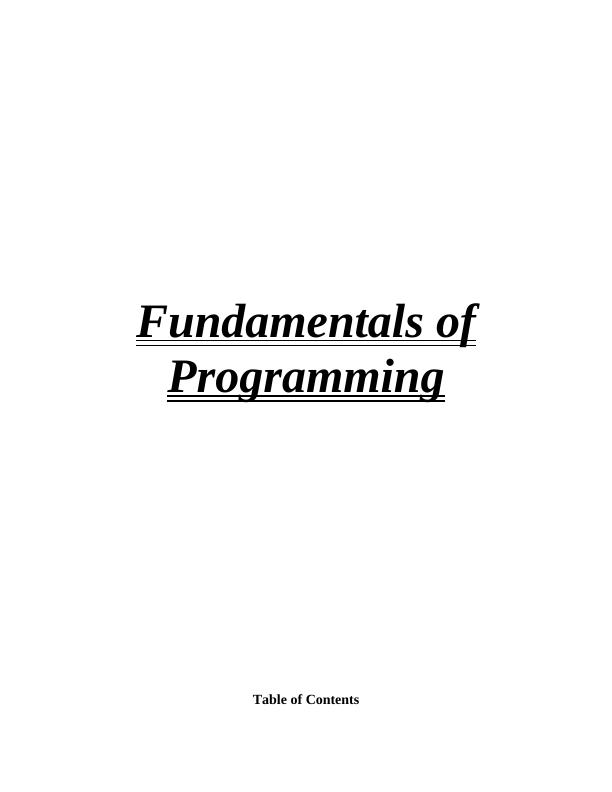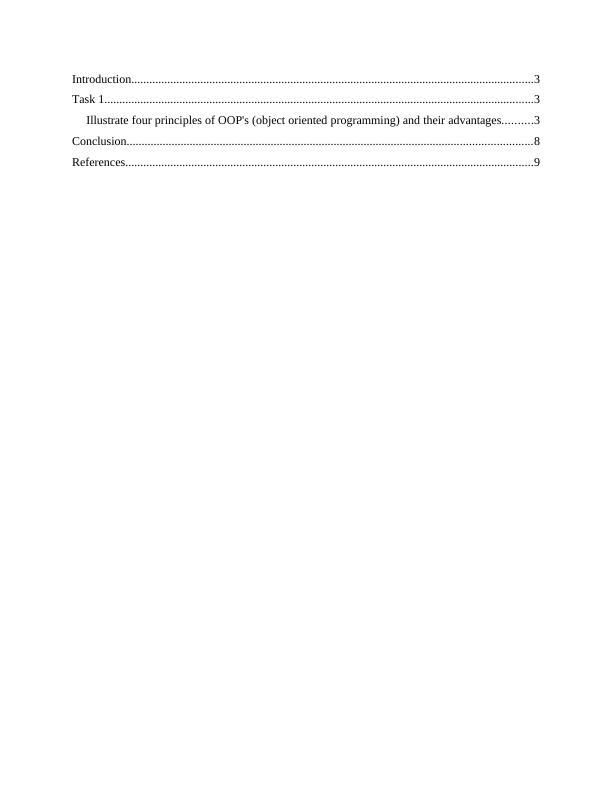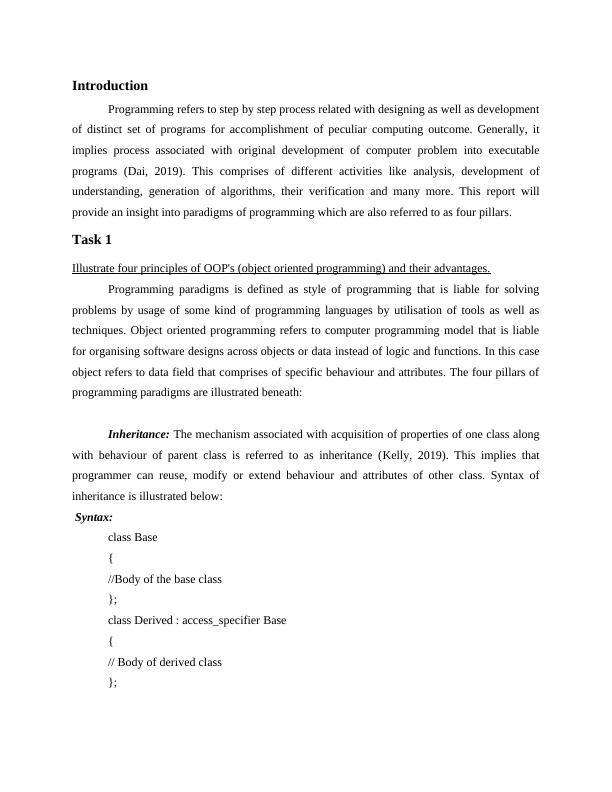Fundamentals of Programming
9 Pages1287 Words62 Views
Added on 2023-01-09
About This Document
This report provides an insight into the paradigms of programming, specifically the four pillars of object-oriented programming: inheritance, abstraction, encapsulation, and polymorphism. It explains each principle and its advantages with examples. The report concludes by highlighting the importance of these principles in programming.
Fundamentals of Programming
Added on 2023-01-09
ShareRelated Documents
End of preview
Want to access all the pages? Upload your documents or become a member.
Assignment On Basic Mathematical Operations
|5
|460
|16
OOPS Concepts: C++
|10
|1216
|314



